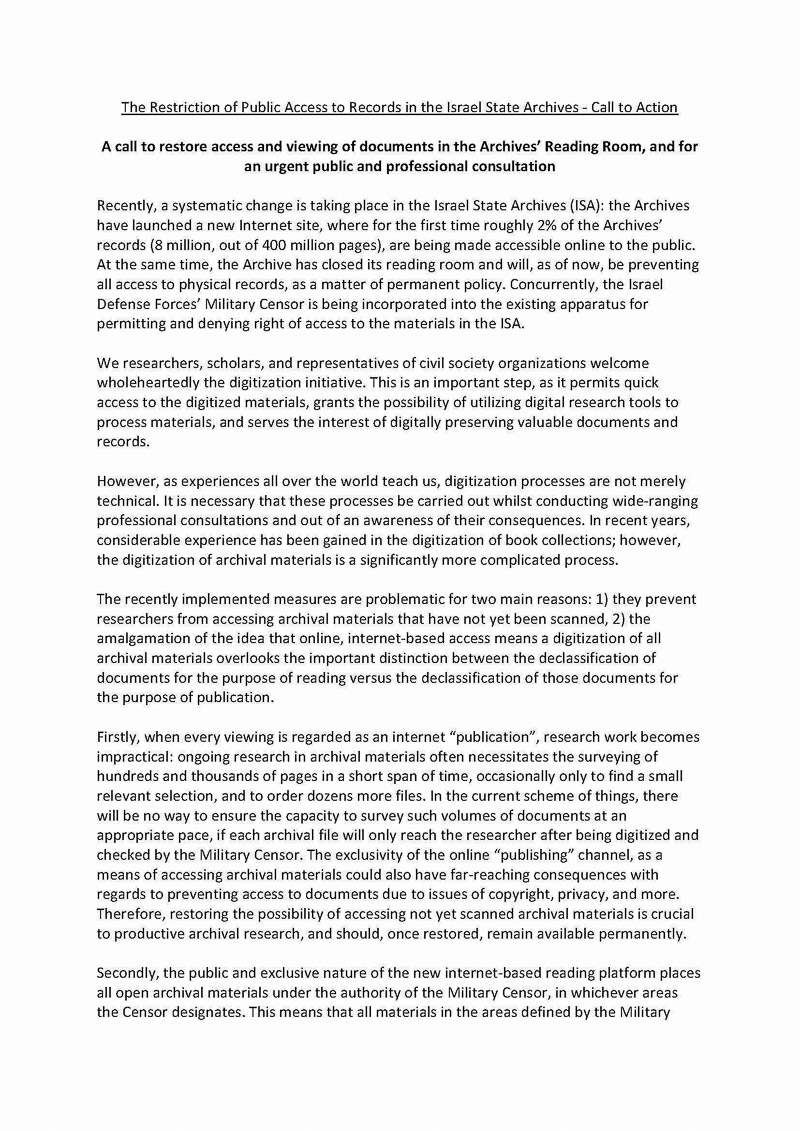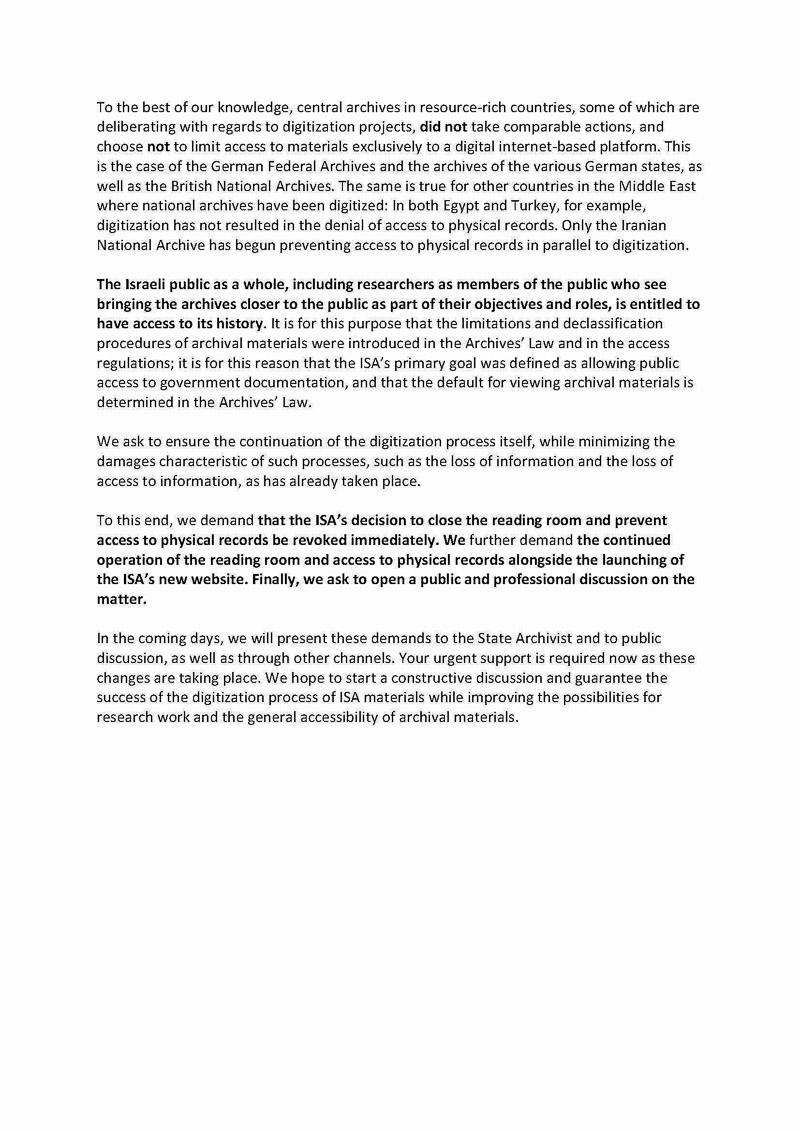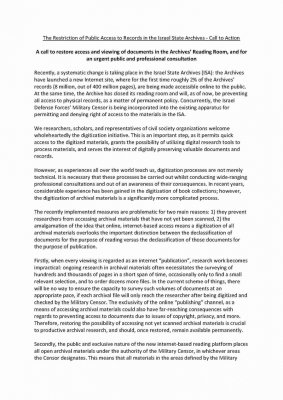The new Israel State Archives website went live in mid-April. The new site is intended to make digitized copies of archival materials available to the public online. This is excellent news, except that the move is accompanied by and conditioned upon the closure of the reading room in the Jerusalem physical location of the Israel State Archives (ISA). This will result in denial of access to important archival materials that are now declassified and publically accessible.
From the moment news of the cessation of access to physical material became known (only about three weeks before the move was going into effect), Akevot, together with a large number of groups and individuals that recognize the importance of access to the ISA, have worked to correct this terrible mistake. We are working to have access to hard copies reinstated, alongside online access, and to prompt a public-professional discussion that includes Archive users in the process of digitization.
Some more details: What is the situation and what are the problems?
At this point, about 2% of the archival material stored in the Israel State Archives has been uploaded to the website. At the same time, borrowing of physical files has ceased. With no option to view materials that have not been put online, much of the material that was accessible to the public until now (after being reviewed and cleared for viewing by the competent officials in the Archives), will now be inaccessible again due to its sensitivity to wide publication. Other materials will not be exposed to the public at all because no viewing option that is not mass publication is available.
Moreover, because all of the material that is open to the public is considered a publication, the military censorship will (and has begun to) inspect selected material, and decide which to make classified, according to its own considerations – in addition to existing screening and clearance mechanisms. Privacy and copyright concerns may also limit access to archival materials.
Because archival material can no longer be accessed other than online, the public’s access to it is undermined and limited, contrary to the spirit and provisions of the Archive law. As the more the 300 researchers who have thus far signed the petition to reinstate access to physical records demonstrate, the situation raises concerns of serious harm to research at the Archives.
Why has access to physical records been denied and what has to happen now?
According to the Israel State Archivist, ending access to hard copies is a human resources issue: He was told by archive stacks workers that they would not be able to meet the requirements of transferring files both to the reading room and to the digitization staff. And yet, any shortage of resources is the result of a resource allocation policy. In the current state of affairs, the decision to withhold resources for review of hard copy materials greatly undermines the Archives’ purpose of allowing public access to government records. The ISA will not say what resources are missing: how many positions, how much money will be required to overturn the decision.
Other National archives around the world that are in the process of digitization have not closed their reading rooms or blocked access to paper documents. In Israel, this unusual move takes place without advance notice, publicity or any consultation with the public at large, archive users specifically or the Archivist Association or the Supreme Council of Archives.
Along with hundreds of researchers, the Association for Civil Rights in Israel, has also contacted the State Archivist, requesting access to physical records not be withheld. Calls from the academic community are still spreading, and with them, calls from documentarists, journalists and others. Archive users who wish to join the call to renew access to hard copies of archival materials in tandem with the digitization process and online access and to include archive users in the conversation about the digitization process are welcome to use the Contact Us page, or at unclose.archive@gmail.com




